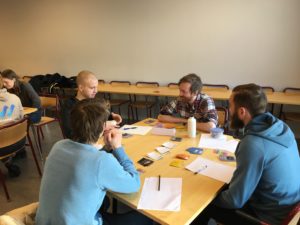My name is Justus Jalava. I am from Tampere, Finland and I am a third year student in Tampere University of Applied Sciences studying environmental engineering and management. At SLU, I will be working with removal and recovery of phosphorus from wastewater produced by the manufacturer of a novel toothpaste. My objective is to work with determining and analysing which is the most efficient way of phosphorus extraction from a set of possible methods. I will be staying in Uppsala until the start of November 2022.
Category: English
Isis Conroy to work with fate of AMR/ARGs in urine
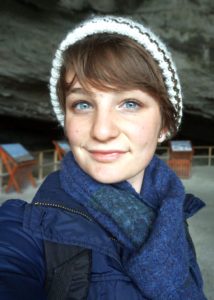 My name is Isis Conroy. I am originally from the United States but now call Tampere, Finland home. I attend Tampere University of Applied Sciences, where I am in my third year of Environmental Engineering studies. While at SLU, I will be a member of the urine dehydration team. My responsibility is to help test the effect of UV and peroxide on bacterial DNA in human urine to ensure the safety of the finished fertilizer. I will be here until the beginning of November.
My name is Isis Conroy. I am originally from the United States but now call Tampere, Finland home. I attend Tampere University of Applied Sciences, where I am in my third year of Environmental Engineering studies. While at SLU, I will be a member of the urine dehydration team. My responsibility is to help test the effect of UV and peroxide on bacterial DNA in human urine to ensure the safety of the finished fertilizer. I will be here until the beginning of November.
Oliver Pay finishes his summer internship with the urine group!
My time working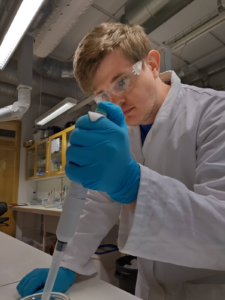 on the urine drying project has come to an end. It has been a great privilege to work on this project, and Prithvi and his team have helped me develop both my laboratory and analytical skills. During my time here we have tested ways to stabilise urine as well as develop new analytical methods, and I am looking forward to further developments in these technologies. I have met and worked with some great people who are all working on different parts of the urine drying systems and I wish them all the best for the future.
on the urine drying project has come to an end. It has been a great privilege to work on this project, and Prithvi and his team have helped me develop both my laboratory and analytical skills. During my time here we have tested ways to stabilise urine as well as develop new analytical methods, and I am looking forward to further developments in these technologies. I have met and worked with some great people who are all working on different parts of the urine drying systems and I wish them all the best for the future.
Nea Ahopalo wraps up her internship with the urine group!
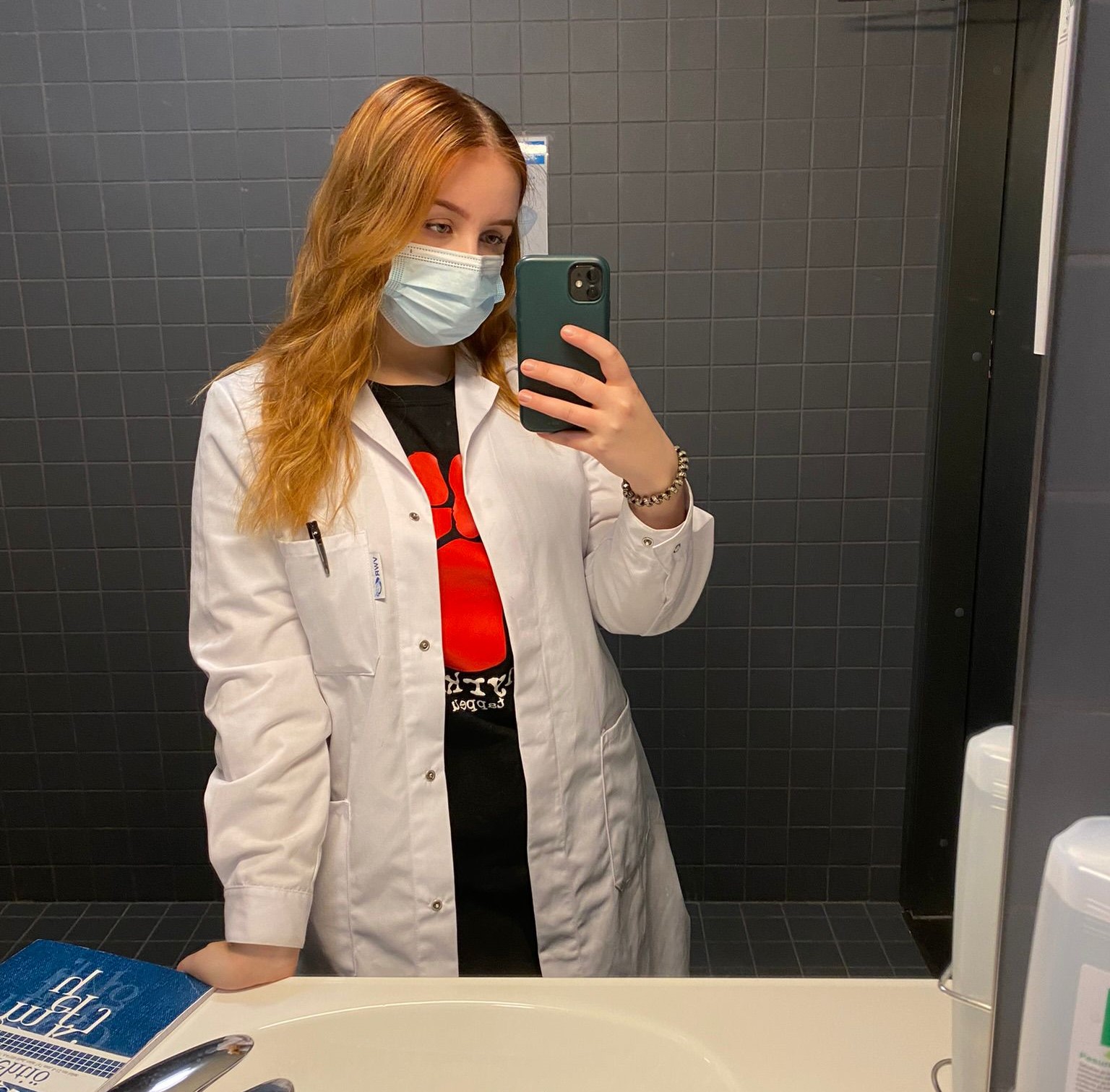 Hello! My name is Nea Ahopalo, and I am a third-year environmental engineering student at Tampere University of Applied Sciences, Finland. For the last 3 months, I have worked for SLU at the Department of Energy and Technology, and now my internship is coming to an end. The project I was assigned to turned out to be fascinating and I had such a great time working in the laboratory with everyone else working with the urine drying projects. I have learned a lot during these 3 months, and I feel more confident in my abilities as a researcher now, although I still have so much more to learn. I want to thank SLU and everyone I had the pleasure of working with for the summer! Thank you for your insights, comments and willingness to help whenever help was needed. I wish everyone a great rest of the summer and I hope to see you again!
Hello! My name is Nea Ahopalo, and I am a third-year environmental engineering student at Tampere University of Applied Sciences, Finland. For the last 3 months, I have worked for SLU at the Department of Energy and Technology, and now my internship is coming to an end. The project I was assigned to turned out to be fascinating and I had such a great time working in the laboratory with everyone else working with the urine drying projects. I have learned a lot during these 3 months, and I feel more confident in my abilities as a researcher now, although I still have so much more to learn. I want to thank SLU and everyone I had the pleasure of working with for the summer! Thank you for your insights, comments and willingness to help whenever help was needed. I wish everyone a great rest of the summer and I hope to see you again!Nutrient stocks, flows and balances for the Bolivian agri-food system: Can recycling human excreta close the nutrient circularity gap?
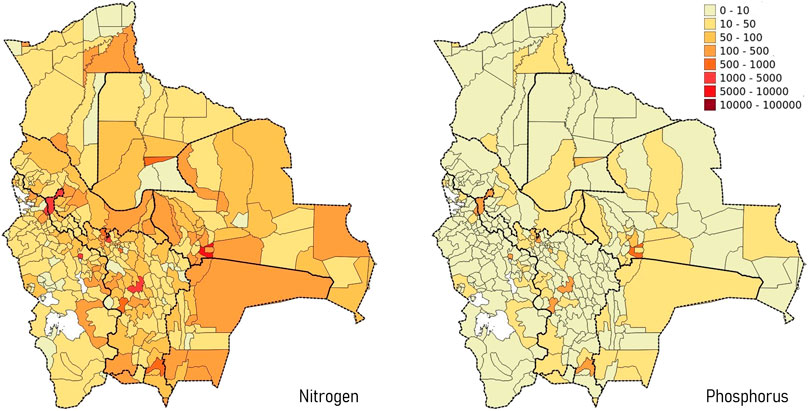
Availability of nutrients from human excreta in Bolivia in 2018.
In our latest article in #Frontiers in Environmental Sciences, Luis Fernando Perez Mercado, Cesar Ariel Perez Mercado, Bjorn Vinneras and Prithvi Simha analyse the current state of nutrient stocks, flows, and balances of the agri-food system in #bolivia. Their findings show that there is sufficient stock of #nitrogen and #phosphorus in human excreta to meet the deficit of nutrients in the food system, as well as regional nutrient surpluses that are not recirculated today. Today, Bolivia recirculates 44% of nitrogen and 74% of phosphorus used in agriculture. But we believe that circularity is going to decrease considerably over the coming years, as the national strategy to address nutrient deficits has been to increase the domestic production of synthetic fertilisers (See shorturl.at/abNQV).
Calculating mass balances always seems simple on paper. But it is difficult in practice, especially when you perform it at national, regional, and municipal levels, as we have done in this article. They usually don’t add up. Here, they also suggest how deforestation and depletion of forest nutrient stocks could be a reason why our national-level balance does not add up.
The full artile is available here: https://lnkd.in/d5dt42Qf
Prithvi co-authored a paper on degumming of Ramie Fiber with group from ICT India

In a new study that was published in the journal Environmental Technology and Innovation, Prithvi along with his co-authors describe a novel process to degum ramie (Boehmeria nivea L.) is one of the oldest known fiber crops and one of the strongest natural fibers. For textile processing industry, the fiber needs to be degummed to a gum content below 6%. Conventionally, ramie is degummed by using chemicals like hot alkali solutions (sodium sulfate, sodium hydroxide or combination of both) followed by hydrogen peroxide treatment for bleaching or by water retting, both of which generate significant amount of effluent.
Almedalen 2022 Presentations by Jenna Senecal
On July 3rd Jenna Senecal presented at Almedalen 2022. The first presentation was about our urine treatment technology (link to the video presentation found here https://youtu.be/h0L8WeJIACw). The second was a panel discussion about youth and sustainable food systems hosted by SIANI, World Food Program, and Agroforestry Network (link to the video presentation found here https://www.youtube.com/watch?v=x_ue8_ttYws).
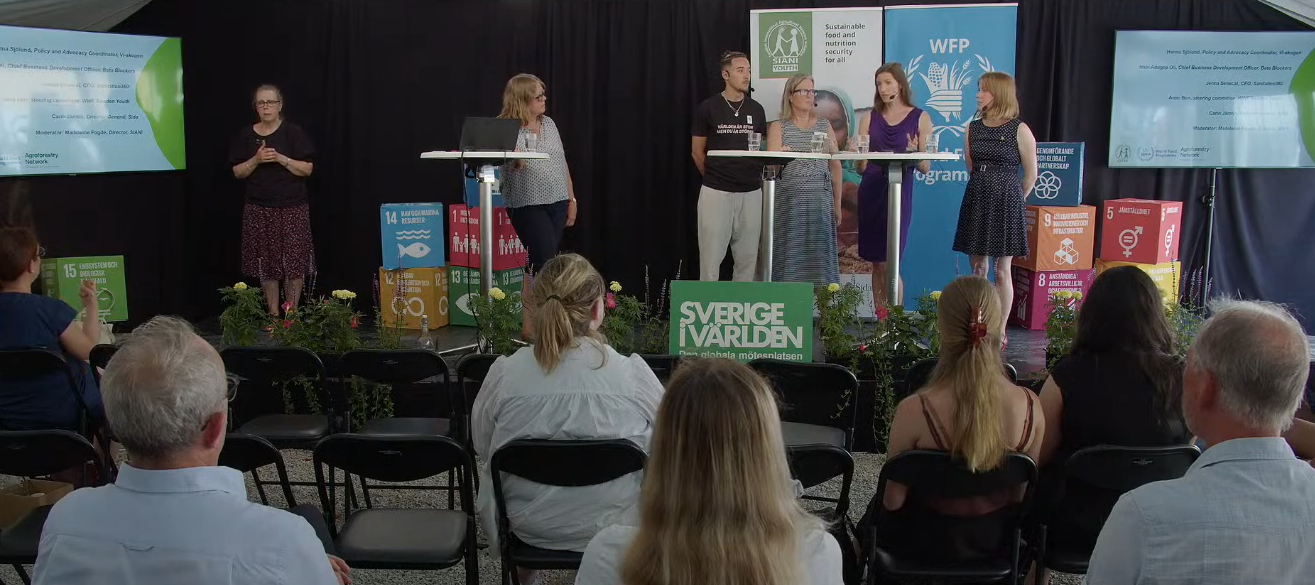
Barley plant trial on Gotland is growing well
On Gotland, we have a 350 m2 field trial growing barley that has been fertilized with dried urine (collected on Gotland in summer 2021 with TouchDown), mineral fertilizer or no fertilizer. This summer, we complemented the urine fertilizer with mineral phosphorus to match the recommended fertilizer needs of malting barley. The fertilized plants are growing well, while the none fertilized plants are shorter. We will harvest in late August and test the grain quality.
- Jenna Senecal inspecting the barley plants, July 2nd ;
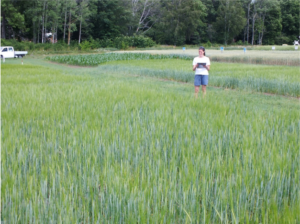
- Barley plants (day 54) fertilized with urine (left), mineral fertilizer (right) or no fertilizer (middle) ;
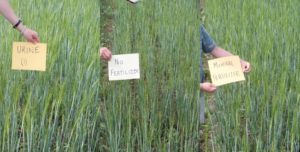
Congratulations to Dr Alice Isibika!
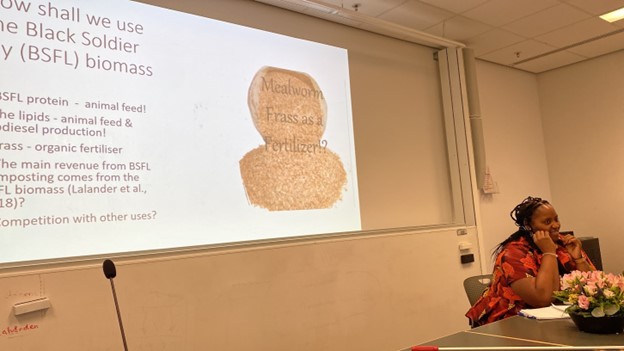
On the 8th of June, Alice Isibika successfully defended her thesis Use of pre-treatments and substrate blending to enhance process efficiency in black soldier fly larvae composting of food industry waste. External reviewer was Professor Sven Gjedde Sommer from Aarhus University (Denmark). The evaluation committee was Associate Professor Lara Maistrello from University of Modena and Reggio Emilia Area San Lazzaro (Italy), Dr Chrysantus Tanga from International Centre of Insect Physiology and Ecology (Kenya) and Docent Maria Westerholm from SLU here in Uppsala. The reserve in the committee was Docent Åke Nordberg from our own department. Alice got a lot of questions from both the opponent and the committee members, and the defense lasted from 1 pm till 4:30 pm. We think Alice did a great job and congratulate her on this achievement. We wish Alice the best of luck in her future endeavors, and hope that she will be able to apply what she studied in her thesis work also in practice when she returns home to Tanzania.
How to evaluate the effectiveness of game-based interventions in decision-making process?
In this latest publication on game-based approaches for planning and decision-making for sanitation, we have collaborated with researchers at EAWAG. The study aimed to answer the question: how effective are game-based interventions specifically designed to support decision-making processes? We used an illustrative case to reflect on this question. We simultaneously designed a card game to support sanitation decision-making and an evaluation procedure.
We found that it is possible to address the dual challenge of game-based interventions for participatory decision-making processes:
(1) designing an informative and engaging game-based intervention without telling participants what to think and
(2) designing a tailored evaluation procedure. Designing the game-based intervention and its evaluation simultaneously is valuable both to improve the quality of the game, but also the opportunity provided a structured assessment of the results.
We encourage others to follow this approach and use the evaluation framework proposed in this paper.
